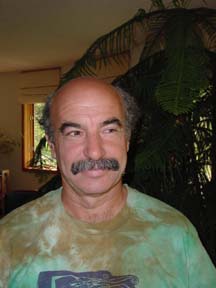WASHINGTON - Little time remains for brokering a global deal on climate change, and a successful outcome depends on involvement and commitment by both developed and developing countries.
This message was driven home yesterday by renowned economist Sir Nicholas Stern, speaking at the Center for Global Development in Washington, D.C.
Stern stressed that by 2050 — the year often used as a target for reducing global emissions — 8 billion of the global population of 9 billion will be living in developing countries. But at least 70 percent of the greenhouse gases polluting the skies today are attributable to developed countries.
If the two sides cannot overcome current disagreements and work together to stop deforestation, develop new technologies for capturing carbon in the air, and set firm targets for reducing pollution, Stern warned, the “cost of inaction will be huge and entail major risks.”
Two years ago Stern produced a controversial report on the economics of climate change, commissioned by the British government, arguing that if governments failed to invest at least 1 percent of their GDP in mitigating global warming, the end result could be a global decline in GDP of as much as 20 percent.
Yesterday, Stern acknowledged that his earlier report probably underestimated the risks and the rapidity with which global warming is taking place, meaning that governments may need to commit 2 percent of GDP to mitigating climate change.
Stern’s warnings came just a day after two other blunt warnings on the impact of climate change.
On Wednesday, 16 national intelligence agencies acknowledged in a new National Intelligence Estimate (NIE) that global climate change presents a threat to U.S. national security — perhaps the most candid assessment to surface publicly in Washington during the Bush era.
This message was driven home yesterday by renowned economist Sir Nicholas Stern, speaking at the Center for Global Development in Washington, D.C.
Stern stressed that by 2050 — the year often used as a target for reducing global emissions — 8 billion of the global population of 9 billion will be living in developing countries. But at least 70 percent of the greenhouse gases polluting the skies today are attributable to developed countries.
If the two sides cannot overcome current disagreements and work together to stop deforestation, develop new technologies for capturing carbon in the air, and set firm targets for reducing pollution, Stern warned, the “cost of inaction will be huge and entail major risks.”
Two years ago Stern produced a controversial report on the economics of climate change, commissioned by the British government, arguing that if governments failed to invest at least 1 percent of their GDP in mitigating global warming, the end result could be a global decline in GDP of as much as 20 percent.
Yesterday, Stern acknowledged that his earlier report probably underestimated the risks and the rapidity with which global warming is taking place, meaning that governments may need to commit 2 percent of GDP to mitigating climate change.
Stern’s warnings came just a day after two other blunt warnings on the impact of climate change.
On Wednesday, 16 national intelligence agencies acknowledged in a new National Intelligence Estimate (NIE) that global climate change presents a threat to U.S. national security — perhaps the most candid assessment to surface publicly in Washington during the Bush era.
